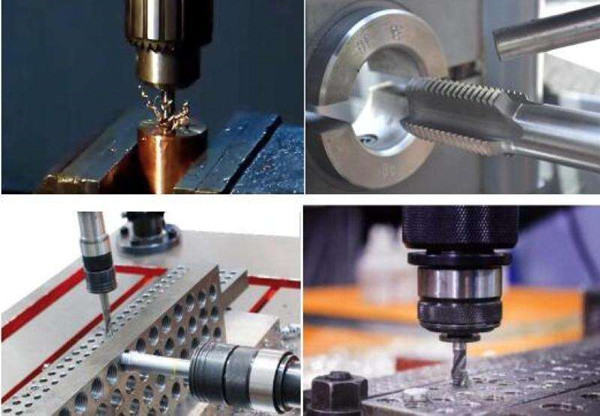With the development of processing technology, in recent years, titanium alloys have been widely used in the manufacture of compressor section, hood, exhaust device and other parts of aircraft engine, as well as the manufacture of structural frame parts such as beam diaphragm of aircraft. Tapping of titanium alloys, especially small holes below M6mm, is quite difficult. The main reason is that the chip is small and easy to bond with the blade and workpiece, resulting in large surface roughness and large torque.

When tapping, improper selection and operation of taps can easily lead to work hardening, low processing efficiency and breakage of taps. The solutions are as follows:
The number of teeth should be less than that of standard taps, usually 2-3 teeth. Cutting taper angle should be large, taper part is generally 3-4 thread length. In order to facilitate chip removal, the negative inclination angle can also be grinded in the cutting cone part. Choose short taps as far as possible to increase the rigidity of taps. The inverted cone part of the tap should be enlarged appropriately compared with the standard to reduce the friction between the tap and the workpiece.
In order to reduce the hardening of the bottom hole, roughing drill is first used and reaming drill is used to ream the bottom hole. For threads with pitches of 0.7-1.5mm, the size of bottom hole can be machined to the top difference of standard thread bottom hole stipulated by the national standard, and it can be increased by 0.1mm.
If the position of the screw hole and the shape of the workpiece are not limited, machine tapping should be adopted as far as possible to avoid the work hardening caused by uneven feeding of manual tapping and stopping in the middle.
Titanium alloy is an ideal material for aircraft and engine because of its high specific strength, good mechanical properties and corrosion resistance. However, its poor machinability has restricted its application to a large extent for a long time.
